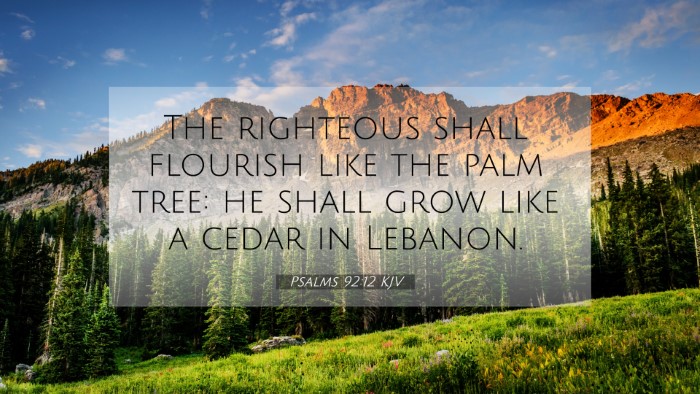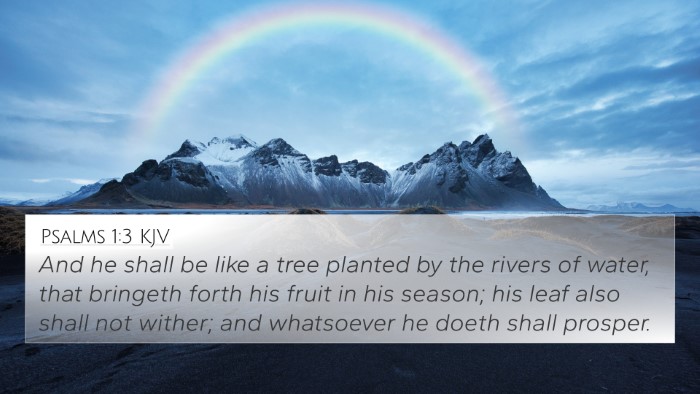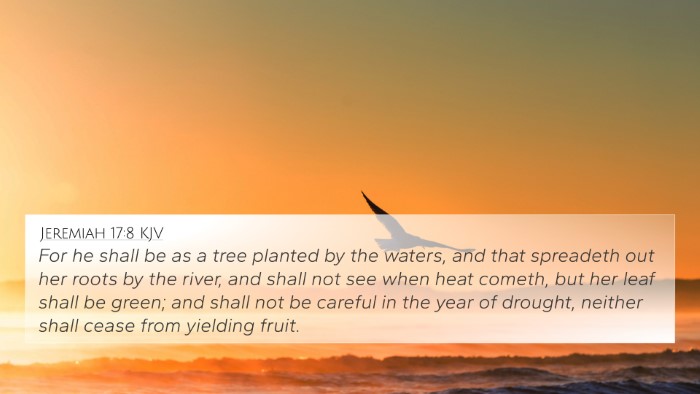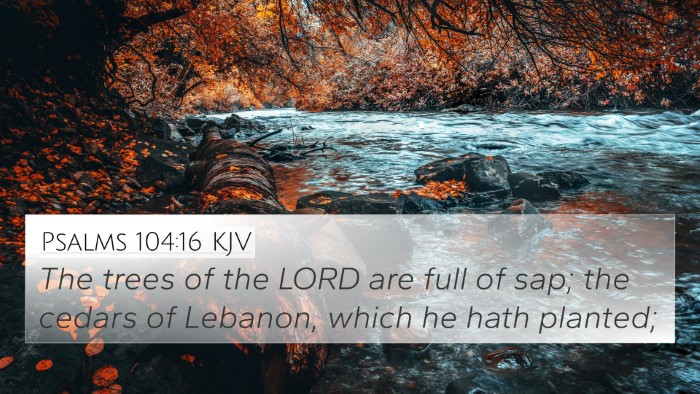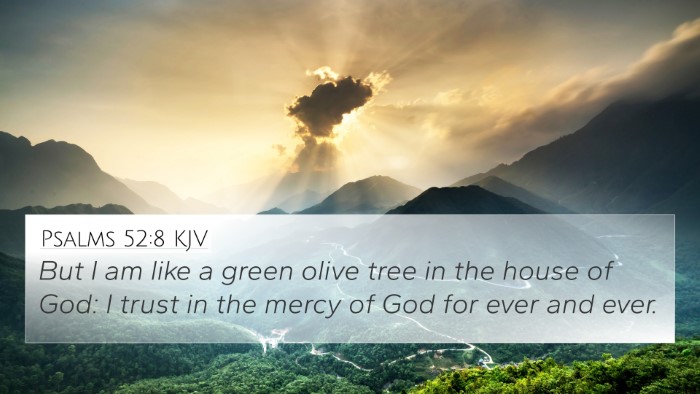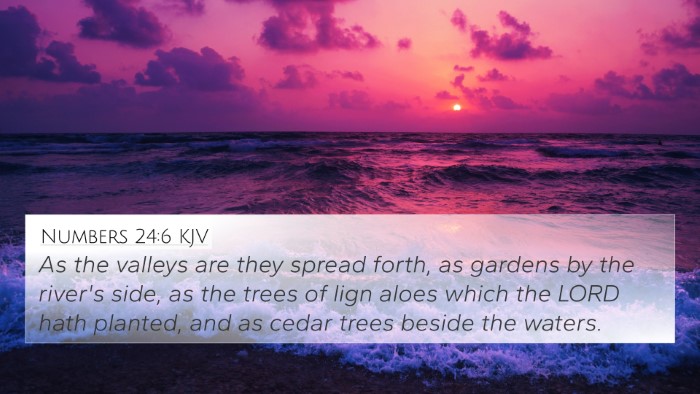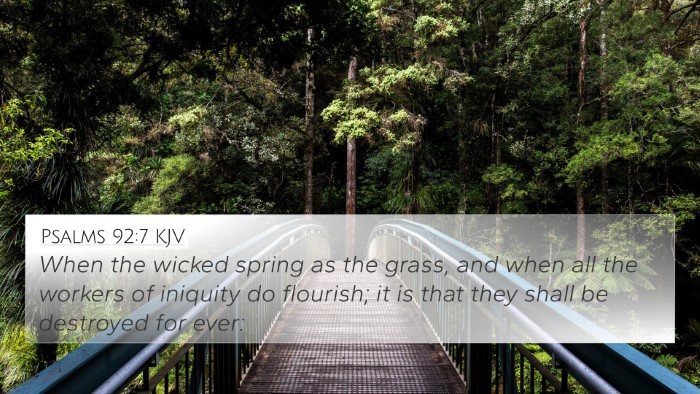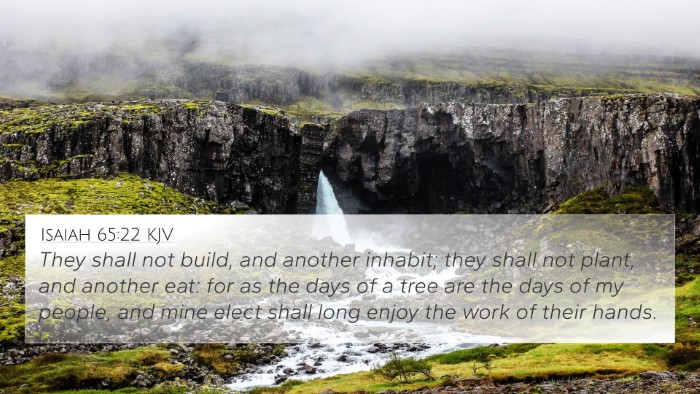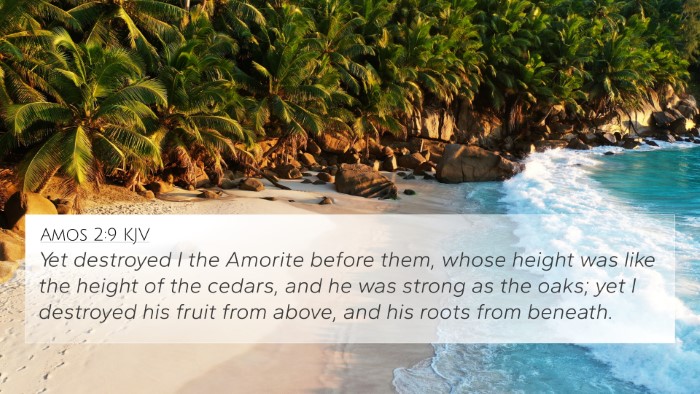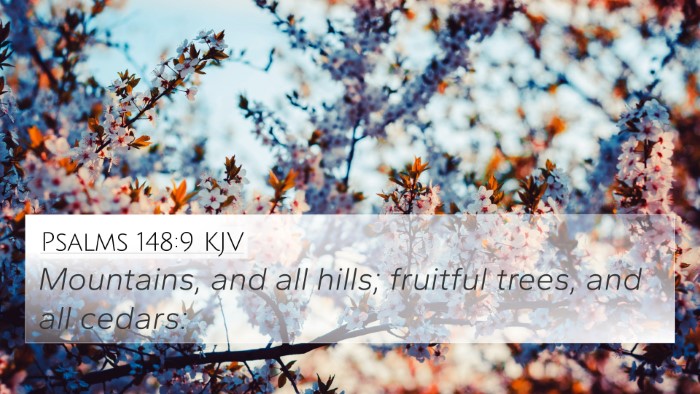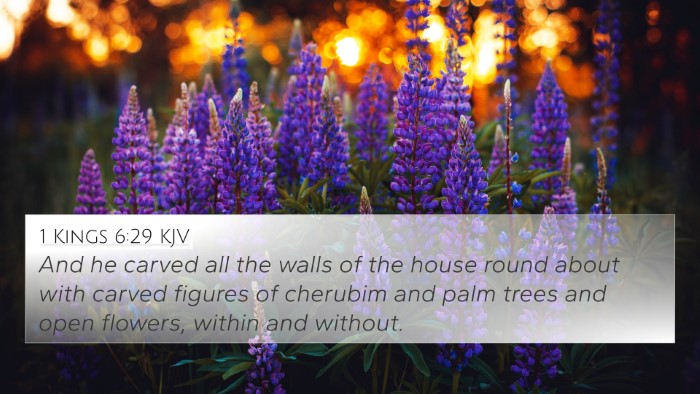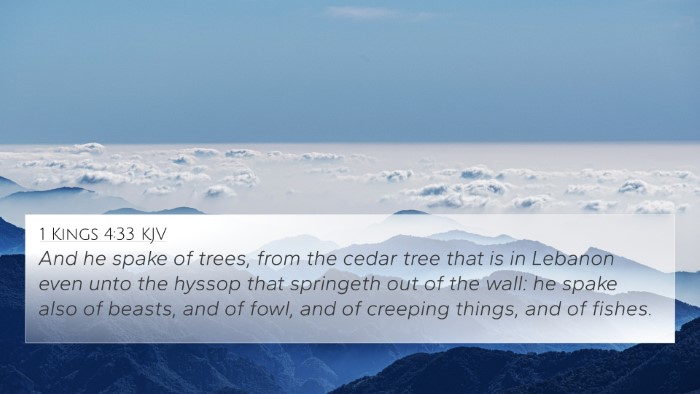Psalms 92:12 - Meaning and Interpretation
Psalms 92:12 states, "The righteous shall flourish like the palm tree: he shall grow like a cedar in Lebanon." This verse encapsulates a powerful metaphor emphasizing the strength and resilience of the righteous in contrast to the wicked, portraying their enduring presence and vitality. Through the insights of various public domain commentaries, we gain a deeper understanding of the profound significance of this verse.
Summary of Insights
The verse paints an imagery-rich picture of the characteristics of the righteous. Matthew Henry emphasizes that the palm tree symbolizes victory, steadfastness, and worthiness. The imagery of the cedar signifies strength and stability, representing the righteous person who thrives amid adversity.
Comparative Analysis
Albert Barnes notes that the flourishing of the righteous resembles the natural growth of plants in fertile soil. This comparison highlights how the spiritual life of the faithful can grow robustly and attractively when nurtured by God’s grace.
Contextual Considerations
Adam Clarke provides critical insights into the context of this verse, suggesting that the flourishing of the righteous not only pertains to material blessings but also to spiritual prosperity. The righteous are promised a legacy that transcends generations.
Key Themes and Concepts
- Resilience: The verse suggests that like the palm tree, the righteous stand tall even in adversity.
- Growth: Emphasizes the importance of spiritual growth and stability.
- Endurance: The mention of mighty cedars signifies long-lasting vitality.
- Divine Favor: The growth of the righteous reflects God's blessing upon them.
Cross-References for Psalms 92:12
Understanding Psalms 92:12 benefits from exploring linked scriptures that reinforce its themes and messages. Below are some notable Bible verse cross-references:
- Psalms 1:3: "And he shall be like a tree planted by the rivers of water, that brings forth his fruit in his season." (Theme of stability and fruitfulness)
- Isaiah 61:3: "To appoint unto them that mourn in Zion, to give unto them beauty for ashes, the oil of joy for mourning, the garment of praise for the spirit of heaviness." (Joy and flourishing post-adversity)
- Jeremiah 17:7-8: "Blessed is the man that trusts in the Lord, and whose hope the Lord is." (Comparison of flourishing in trust)
- Matthew 7:17: "Even so every good tree brings forth good fruit; but a corrupt tree brings forth evil fruit." (Righteousness and its fruits)
- Revelation 22:2: "In the midst of the street of it, and on either side of the river, was there the tree of life, which bore twelve manner of fruits..." (The divine reward of flourishing)
- Psalms 92:14: "They shall still bring forth fruit in old age; they shall be fat and flourishing." (On continued growth into old age)
- Philippians 1:11: "Being filled with the fruits of righteousness, which are by Jesus Christ, unto the glory and praise of God." (Relation of righteousness with divine glory)
Understanding the Connections
The connections between these Bible verses elucidate how the righteous are nurtured in faith, flourishing spiritually and bearing good fruit. Through cross-references, one can interpret the significance of a life filled with divine favor and support from God.
Tools for Bible Cross-Referencing
For those interested in further study:
- Bible concordances assist in identifying key themes.
- Bible reference resources can deepen understanding of connections.
- Cross-reference Bible study methods provide frameworks for thematic explorations.
- Comprehensive Bible cross-reference materials offer extensive insights into interconnected scriptures.
Conclusion
Psalms 92:12 serves as a profound reminder of the enduring strength and vitality of the righteous. By employing cross-referencing techniques and consulting various commentaries, believers can deepen their understanding of how this verse connects to broader Scriptural themes, enhancing their study and interpretation of God's Word.


